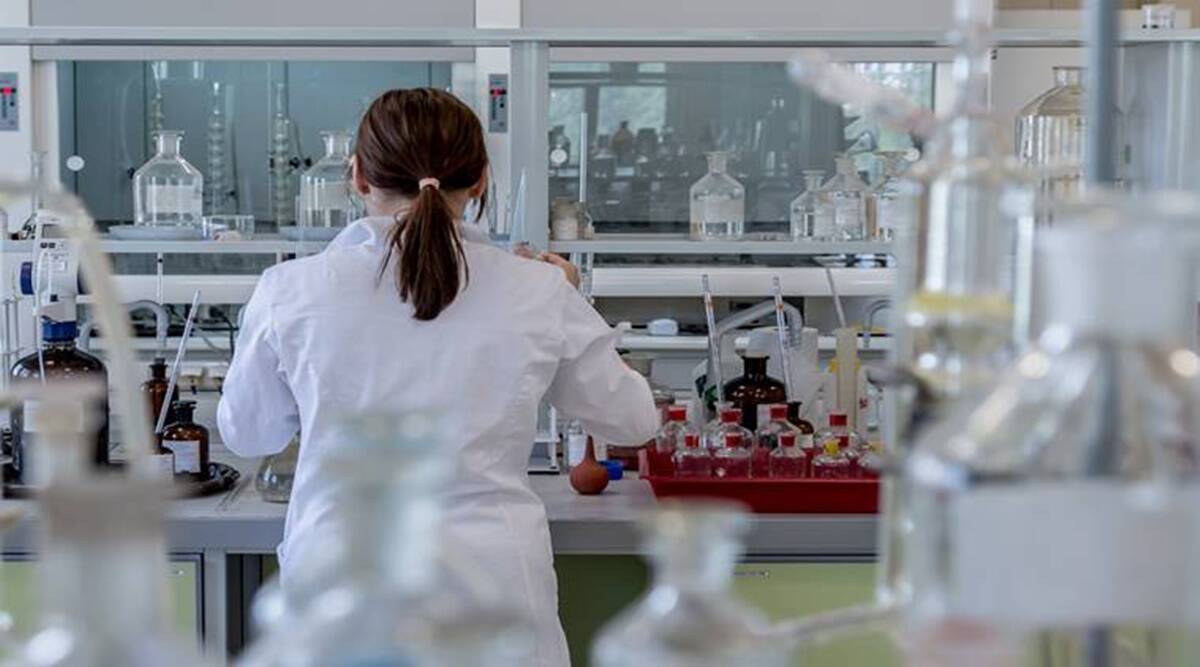
A little known biosciences company near Kolhapur in Maharashtra is testing a new drug that could potentially become India’s first indigenously developed cure for Covid-19, at least for mild and moderately-infected patients.
In early tests, the drug is promising to turn infected patients RT-PCR negative in 72-90 hours, company officials told The Indian Express. The candidate drug is currently undergoing phase 1 human trials that are likely to be competed by the end of this month.
With a little help from vaccine manufacturer Serum Institute of India (SII), iSera Biological, a four-year-old company that is engaged mainly in the production of antiserum products for snake bites, rabies, and diphtheria, has developed a potent cocktail of Covid-19 antibodies which, when administered to a mild or moderately ill patient, prevents the disease from spreading further in the body, and neutralises the existing virus.
“As of now, it does look like a promising drug. The principles on which it is based are well-established. We will have to wait for the results of human trials. If found effective, it will be a very suitable drug, especially for a country like India. I think this would be a very affordable drug, compared to a few similar international products that are available,” Prof N K Ganguly, a former director general of the Indian Council of Medical Research, said.
The cocktail comprises very specific Covid-19 neutralising antibodies, purified to remove all extraneous chemicals. The antibodies are developed in horses by injecting them with specific antigens obtained from the virus. SII, which has been producing Covid-19 vaccines, helped in the selection of the right antigens, the chemicals that induce the production of antibodies in the infected host. Horses were chosen for the development of antibodies because, being large animals, they produce large amounts of antibodies, Nandkumar Kadam, Director (New Products) at iSera Biologicals, said.
“The process is similar to giving a vaccine. Horses are injected with specific antigens so that they can develop the antibodies. The antibodies are the same as the ones the human body makes to fight the Covid-19 virus. The antibodies are harvested from the horses and then put through a very high-quality purification process, so that the end product is at least 95 per cent pure antibodies,” Kadam said.
Injecting Covid-19-specific antibodies in infected patients to help them fight the disease is an approach that has been tried earlier in different ways. Plasma therapy, which was once considered an effective life-saving intervention, has had very mixed results. But there is an important difference. In plasma therapy, the quality of blood plasma extracted from a recovered patient differs from person to person. Also, the blood plasma has a host of other chemicals apart from antibodies, and some of these can potentially have adverse reactions in the infected person.
iSera’s candidate drug is a pure mixture of very specific disease-fighting antibodies that can be injected in regulated amounts as advised by doctors. It is also supposed to be an improvement over similar “monoclonal” products, at least one of which is being marketed in India, having been developed by the Swiss pharmaceutical company Roche.
Kadam said iSera’s product, a “polyclonal” antibody mixture, had greater abilities to neutralise the virus compared to monoclonal alternatives. But more importantly, they are much more likely to work against existing and new mutations that will emerge in the future.
It is also likely to be several times cheaper than similar international products. Kadam said the final cost of one injection was likely to be a few thousand rupees. However, the key is to provide the drug at an early stage, when the virus is still to fully take hold of the body of the infected person.
The company is planning for combined phase 2 and phase 3 clinical trials in September and October and, if all goes well, hoping to make the final drug available by the end of this year. (Indian Express)
